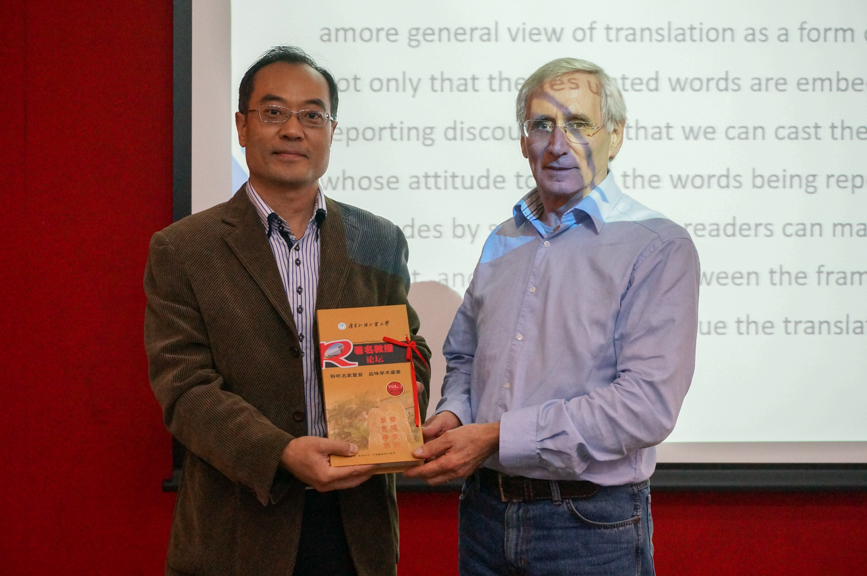On the afternoon of March 24th, Professor Theofiel Jozef Hermans, who is currently Professor of Dutch and Comparative Literature at University College London (UCL) and a corresponding member of the Royal Flemish Academy and an Honorary Fellow at the University of Manchester’s Center for Translation and Intercultural Studies, delivered a speech in the Lecture Hall in Building Seven on the north campus. The topic of the speech was Positioning Translators.
At the beginning of the speech, CHU DongWei, Professor of the School of Interpreting and Translation Studies, expressed both a warm welcome to Professor Hermans and his appreciation of the translations written by Hermans, saying that Hermans’s books had taught him a great deal. After this, the Dean of School of Interpreting and Translation Studies, ZHAO JunFeng, presented a gift to Professor Hermans on behalf of the whole faculty.

ZHAO JunFeng presenting a gift to Professor Hermans
The speech began by showing examples of translations in which translators use various devices to signal their disagreement with, or reservations about, the works they are translating. This type of translation was comparable to discordant narration, a kind of story-telling in which an author fields a narrator who expounds views that were obviously at variance with the author’s own opinions. The parallel led to a more general view of translation as a form of reported speech. This implied not only that the translated words were embedded in the translator’s reporting discourse, but also that we could cast the translator as the reporter whose attitude towards the words being reported was relevant. The speech concluded by suggesting that readers could make a translator’s attitude relevant, and that toggling between the framing and the framed discourse enabled us to discern or construe the translator’s positioning.
Professor Hermans delivering a speech
Some listeners embraced some doubts and raised their hands to ask Professor Hermans after he finished his speech. Hermans interacted with the audience on the scene, answering their questions patiently and supplementing the topic in terms of what they had asked. The atmosphere remained professional yet comfortable all the time.
At the end of the speech, Professor CHU expressed a warm welcome to Professor Hermans once again and the audience responded with thunderous applause.

